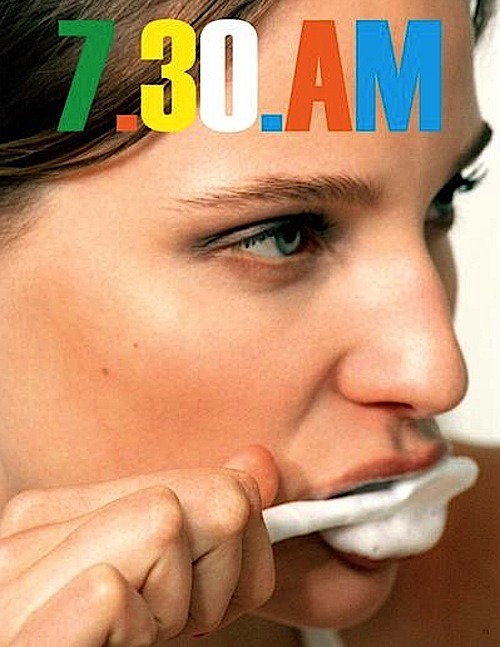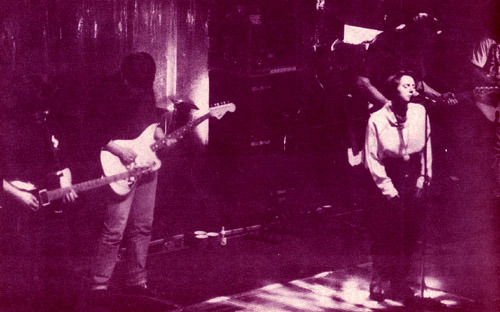Text
DiDi Conquers its Black Taxi Reputation
The Chinese brand DiDi, a riding sharing service, effectively overcame the consumers’ reticence of using their service without offending government officials with the help of a carefully selected non-controversial advertisement. Due to the prevalence of scams in China, advertisers often have to make a case for the reliability of their product or service. The problem in 2017 that the Chinese brand DiDi was facing was a negative perception of taxi cabs which were not a part of the official & aboveboard taxi industry. The setting to why the average Chinese person would have this negative perception of unlicensed cabs was because of their familiarity with these scams called black taxi scams (or 黑车 [Hēichē] literally translated as black car, but in context, it means “an unlicensed taxi”). “Most of the time when an unlicensed taxi is a part of a scam they’d simply charge an absorbent rate e.g. when the market rate for 1km is going for 10RMB they may charge 150RMB instead. In harsher cases, there have been instances where black taxis have driven people out to the middle of nowhere — threatened them and then proceeded to essentially rob them” (Serpentza, 2017, 1:32). By some miracle, before I arrived in Shanghai, China, I happened to have watched Serpentza’s YouTube video on these black taxi scams. So when I arrived in China I was at least subconsciously aware of these black taxi scams; however, at the time I didn’t have my wits about me. Probably due to a multitude of factors including that I was coming from a funeral in Scotland (which was around a 25-hour flight with connecting flight from Zurich, Switzerland) and also having gone through a bothersome kafkaesque immigration system. So when my worn-out self saw the guy soliciting taxi service I ended up taking him up on his offer. Unaware that such a scam could target me; the protagonist of my own story. I ended up putting myself into the hot seat. Lucky for me this particular black taxi scam was of the “simply charge an absorbent rate” variety, & lucky for me the driver was unaware of the value of Scottish banknotes too. With Chinese citizens having more cognizance of these scams than I did, I’m not surprised that many Chinese people prefer clearly marked, pre-arranged taxi cabs coming from a licensed taxi service. However, & to be fair to unlicensed cabbies most of them are aboveboard & simply without a license, with an outdated license, or with a fake license only to get business from customers whilst avoiding fees from the CON-type laws [See: certificate of need laws]. The advice I received in China was that the unlicensed cabbies mostly rip off people coming out of the airports & those leaving nightclubs/bars late at night. The majority of the scams were just varieties of absorbent rate scams too; involving things like a fake meter, a cabbie leaving the meter off & then charging the customer an arbitrary fee, etcetera. On balance, the negative perception of these non-official-looking cars was significant for DiDi to want to address it.
Given the nature of a ride-hailing service brand presenting contractors with conventional-looking cars in an environment with a high prevalence of black taxi scams, one can see why a ride-sharing app would want to assure customers that their ride service is safe. DiDi is claiming that their brand is a safe & credible service despite the unmarked vehicles that their contracted drivers use to pick up the customers. In practice Didi wanted to tell their customers that they do a triple ID background check of their contractors.
In the advertisement DiDi uses various elements to educate their customers without offending any entity nor associating their brand with the black taxi scams. For example, the advert uses an everyman character put into a situation where he needs to win over the parents of his romantic interest. The everyman character is analogous to DiDi’s drivers’ cars being unmarked ordinary cars whilst the parents represent the suspicious consumer. They used these characters in order to educate Chinese consumers into becoming accustomed to a new form of security & identity verification system. Every part of this advertisement is targeted to resolve the credibility issue inside the mind of their targeted audience.
Delving into the advert itself, the suitor doesn’t have to have come properly dressed up: just like the ordinary cars DiDi would expect to be picked up in. DiDi portrays the father & mother who are analogous to DiDi consumers as suspicious of the underdressed suitor. Despite the suitors’ average appearance he provides a series of status symbols to assuage the suspicions of the parents. DiDi shows their character not only providing credentials, but providing the top credentials; representing that DiDi not only requires credentials from their contractors.
In the ads analogy, they use a series of universally recognized status symbols of the highest quality. with a potential suitor to that of ride-hailing customers deciding whether to use the service. Abruptly, & with a warinous disposition with only knowing the suitor’s name thus far the father asks“你是哪里毕业?[nǐ shì nǎlǐ bìyè ?] — Where did you graduate from?” In response, the male lead displays a diploma for Witkin University with a degree in “Business Management” i.e. this provides evidence that the male lead has been taught the ways of earning money; therefore, evincing his ability to support his desired life-partner. After a momentary pause, the mother of the male leads desired life-partner asks “你住哪里呀? [nǐ zhù nǎlǐ ya ?] — Where do you live?”, then; in response, he promptly displays his certificate allowing him to use state-owned land in the People’s Republic of China. This symbolizes another feeling of security. The male lead then provides additional information that the parent hadn’t necessarily thought of asking. Unsolicited, yet much appreciated, the male-lead shows additional status symbols including a picture of him shaking hands with renowned business magnate Jack Ma, the key to his Mercedes (a luxury vehicle), a gold watch, and all his credit cards (likely showing he has good credit). All this represents how DiDi will go above and beyond the call of duty in providing customers security that will leave customers well pleased. The concept I believe the brand is trying to portray with the unsolicited added features is like the Japanese term お持て成し (おもて なし/omotenashi or a type of hospitality or comity where one preemptively takes measures to please without the need to be solicited). In the context of the commercial, if the suitors’ appeals to credibility are good enough for these fictitious parents then DiDi’s new security features should be good enough for the well-to-do Chinese customer. His provided status symbols lead the parents away from their skepticism, to a 不错 (or “not bad”/”pretty good”), to a resounding yes.
I do not think there was a specific worldview DiDi was trying to promote; however, DiDi needs to be careful not to offend government officials. I think they were explicitly trying to avoid politically messaging & negative associations; the focus of the advert was on the analogy & keeping the tone of the advert lighthearted. It appears that DiDi explicitly avoided mentioning taxi scams. As for any political stance, I believe they hadn’t taken any explicit political stance & I think the only explicit thing that could be interpreted as a political angle would be disclaimer text below the outro screen mentioning the “Five Security Technologies: Authenticity with Three Certificates”: which said something along the lines of “The implementation of specific functions in each city will be slightly different, and the rules of each city are subject to change. However, I doubt this is being much of a political angle — it is more like another appeal to credibility; stating that they’re compliant with the government. This disclaimer also has the added benefit of notifying their customers that they’re a licensed service.
Considering China’s cultural conditions, this Didi advertisement is quite effective. DiDi effectively persuaded their suspicious consumers about the safety & reliability of their service, separating their brand from the negative association of black taxi scams, whilst avoiding offending the government. Today, DiDi has grown into a highly successful behemoth.
References
Didi Chuxing Technology Co, & Tencent Holdings Ltd. (2018). Five Security Technologies: Authenticity with Three Certificates. Retrieved February 19, 2022, from https://youtu.be/ualOF-Ew1HM.
Winston Frederick Sterzel (SerpentZA). China’s Black Taxi Scam! China’s most successful Scam? (2017). YouTube. Retrieved February 19, 2022, from https://youtu.be/MYKw7Mi9bJo. Countless tourists and people fresh off the boat in China (including myself) have fallen for the BLACK TAXI SCAM! What is it and how can you avoid it?
Levi Mulder: Department of English, KU: ENC 2102: English Composition II Captain Supermarket: 2/15/2022
#Levi Mulder#English Composition#English Composition II#DiDi#Ride-hailing service#ride-hailing#serpentza#commerical analysis#black taxi scam#black taxi#黑车#black taxis#Black Taxi Reputation#Black Taxi Association
5 notes
·
View notes
Photo

Lisa Hartman, Lorna Luft, Lynn-Holly Johnson, & Wendy Schaal in Where the Boys Are ‘84, 1984
344 notes
·
View notes
Photo

Grace Hartzel, Masha Voronina & Lottie Hayes by Steve Hiett for Vogue Italia October 2013
40 notes
·
View notes













